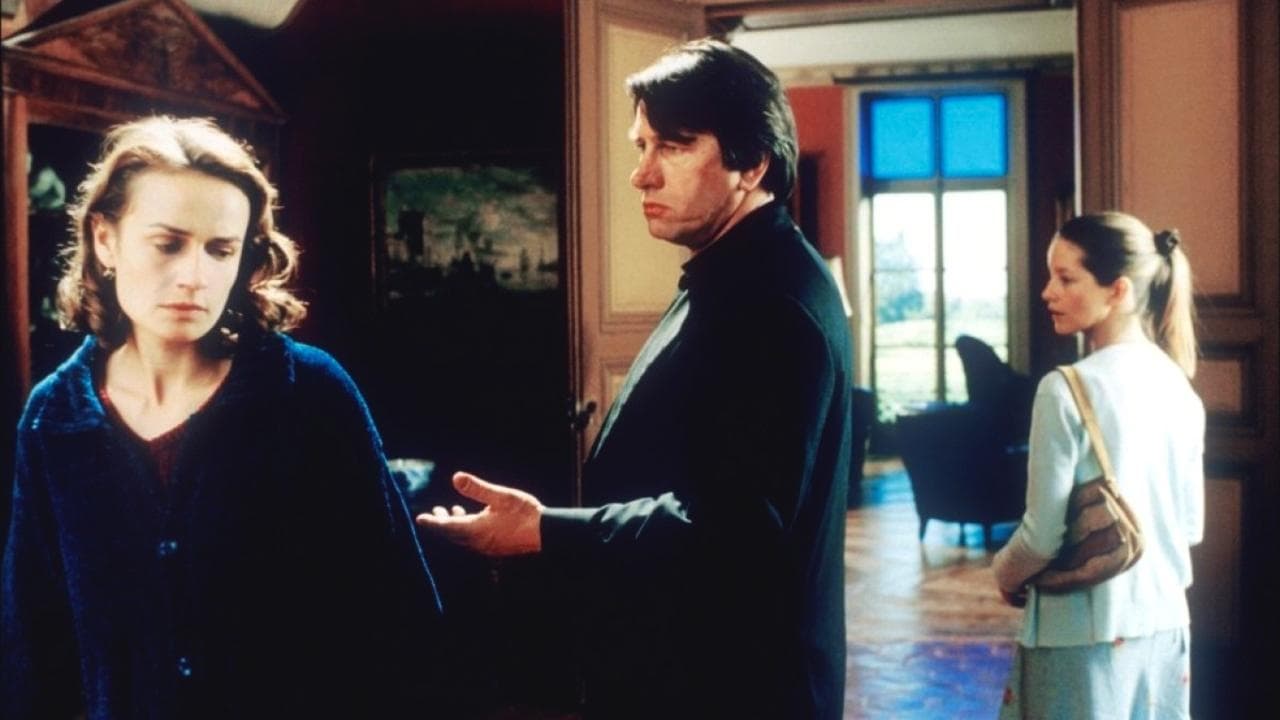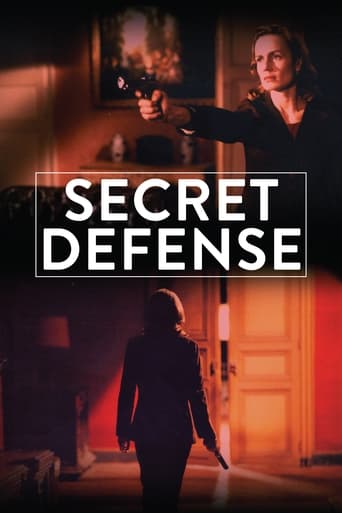Libramedi
Intense, gripping, stylish and poignant
Erica Derrick
By the time the dramatic fireworks start popping off, each one feels earned.
Marva-nova
Amazing worth wacthing. So good. Biased but well made with many good points.
Geraldine
The story, direction, characters, and writing/dialogue is akin to taking a tranquilizer shot to the neck, but everything else was so well done.
gridoon2018
With "Secret Defense", a celebrated "art" director (Jacques Rivette) tackles a popular "pulp" genre (the mystery thriller). The result is demanding yet unpretentious; what Rivette asks from his audience is simply to surrender to his own specific style and rhythm, which means: no musical score (except for the credits), long camera takes, detailed observation of (not always) insignificant everyday activities, no comic relief, etc. If you are prepared to do that, the film is very accessible; it has a solid, coherent plot and gives you, gradually, every piece of the puzzle. It's basically a meditation on the twists of fate, leading to a shocking yet plausible ending. And as you'd expect from a French film, the acting is exceptional; Sandrine Bonnaire doesn't simply play the central tormented character, she becomes one with it. On the whole, I think "Secret Defense" is a refreshing break from both "too-commercial" and "too-arty" fare, and an engrossing experience. *** out of 4.
JasonTomes
But let me concede right away that this is a very personal review. "Secret Defense" has many of the characteristics that usually commend a film to me: it is well acted, it is slow, and it is French! Its milieu is the familiar one of the Parisian "haute bourgeoisie"; the smart city apartment and country château are a little hackneyed perhaps, but attractive all the same. The photography is good. The direction is painstaking. It promises to be an intelligent production.To be honest, however, I found it very hard to sustain interest in it, and my mind soon wandered to the question of why it so utterly failed to engage me. I think it is because it is not at all concerned with character or personality. I can readily believe the suggestion made by previous reviewers that the film is modelled to some extent on ancient Greek drama. Sylvie, Paul, Walser, and Veronique are toys of the gods, not believable individuals. Their responses to events lack credibility. The central relationship between Sylvie and Walser never convinced me.It might be argued that the people in "Secret Defense" are simply very cold-blooded. Yet they are hot-blooded enough when it comes to seeking revenge. The film also contains two of the absurdities often noticeable in more popular thrillers: the police simply do not exist in the world depicted, and the characters show no fear and little wariness even when dealing with people whom they suspect of murder.If your preference is for character-driven drama and realism, you are unlikely to find "Secret Defense" a satisfying experience. And it lasts nearly three hours.
tedg
You know a movie is a great movie not when it is quoted. Many are. It is great when following filmmakers assume it as part of the world and reinvent it the same way they do to experiences in "real" life. I'm not as wild about Hitchcock's complete work as others, but "Vertigo" and another of his films are among the most important and surely on any short list from Hollywood.I've had the pleasure of screening "Vertigo" together with two of its most interesting children.First, you know the story in Vertigo, about a play within the play that is a more like a play within life. The way it is constructed (except for that dumb camera trick that everyone fawns over) emphasizes manifold details about illusion and the illusion of film-making. But the thing is abstracted from life, as all normal movies must be. We know from thousands of conventions when watching that it is a staging of life, not life.There's one scene in Vertigo, where our hero discovers his love in a restaurant. There's a change in color and mood. Peter Greenway took this one scene and layered a whole new film reality on "Vertigo." It is as abstracted from the world of Vertigo as Vertigo is from life.In Greenaway's "Cook, Thief, Lover," the world is indeed bifurcated into the "kitchen" where things are created and the "serving room." Moving from one to the other changes colors in accord with Vertigo. "Cook, Thief" deals with the same issues as Vertigo but with more abstraction: books, love and watching movies as literally eating people.Now we have this, which moves to the other side. It attempts to deal with all the issues and methods of "Vertigo" but by deabstracting into the real world. In the real world, events do not arrange themselves for theatrical convenience. If we need a character to go from the city to the country to do a killing, it takes some time.Accidents occur. Some motives never become clear. When a murdered girl's twin shows up and takes the place of her sister in the bed of a conspiratorial man with an officially secret life, we expect plot turns and surprises. They never come. This is life embossed with a movie.That is, until the very, very last scene. This is extremely stylized as if to gently bring us back to the movie world we thought we were entering at the beginning.There are few French filmmakers of any era worth following. This is one.Ted's Evaluation -- 3 of 3: Worth watching.
Ekki-2
Modern version of the Elektra-myth, keeping rather close to the original (if you look closely), but making sense, in the typical Rivette way, also as a wild story of crime, revenge and love apart from the myth. Sandrine Bonnaire alone is worth the film.


